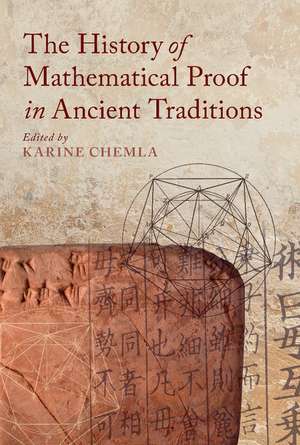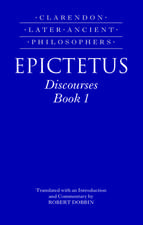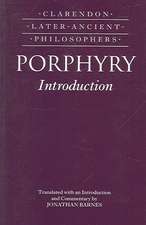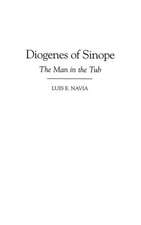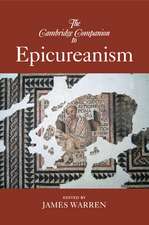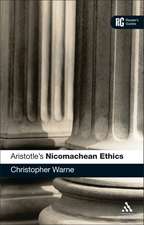The History of Mathematical Proof in Ancient Traditions
Editat de Karine Chemlaen Limba Engleză Paperback – 20 mai 2015
| Toate formatele și edițiile | Preț | Express |
|---|---|---|
| Paperback (1) | 458.78 lei 6-8 săpt. | |
| Cambridge University Press – 20 mai 2015 | 458.78 lei 6-8 săpt. | |
| Hardback (1) | 1183.99 lei 6-8 săpt. | |
| Cambridge University Press – 4 iul 2012 | 1183.99 lei 6-8 săpt. |
Preț: 458.78 lei
Nou
Puncte Express: 688
Preț estimativ în valută:
87.83€ • 90.33$ • 72.86£
87.83€ • 90.33$ • 72.86£
Carte tipărită la comandă
Livrare economică 19 februarie-05 martie
Preluare comenzi: 021 569.72.76
Specificații
ISBN-13: 9781107527539
ISBN-10: 1107527538
Pagini: 614
Ilustrații: 93 b/w illus. 29 tables
Dimensiuni: 170 x 245 x 34 mm
Greutate: 0.96 kg
Editura: Cambridge University Press
Colecția Cambridge University Press
Locul publicării:New York, United States
ISBN-10: 1107527538
Pagini: 614
Ilustrații: 93 b/w illus. 29 tables
Dimensiuni: 170 x 245 x 34 mm
Greutate: 0.96 kg
Editura: Cambridge University Press
Colecția Cambridge University Press
Locul publicării:New York, United States
Cuprins
Prologue: historiography and history of mathematical proof: a research program Karine Chemla; Part I. Views on the Historiography of Mathematical Proof: 1. The Euclidean ideal of proof in The Elements and philological uncertainties of Heiberg's edition of the text Bernard Vitrac; 2. Diagrams and arguments in ancient Greek mathematics: lessons drawn from comparisons of the manuscript diagrams with those in modern critical editions Ken Saito and Nathan Sidoli; 3. The texture of Archimedes' arguments: through Heiberg's veil Reviel Netz; 4. John Philoponus and the conformity of mathematical proofs to Aristotelian demonstrations Orna Harari; 5. Contextualising Playfair and Colebrooke on proof and demonstration in the Indian mathematical tradition (1780–1820) Dhruv Raina; 6. Overlooking mathematical justifications in the Sanskrit tradition: the nuanced case of G. F. Thibaut Agathe Keller; 7. The logical Greek versus the imaginative Oriental: on the historiography of 'non-Western' mathematics during the period 1820–1920 François Charette; Part II. History of Mathematical Proof in Ancient Traditions: The Other Evidence: 8. The pluralism of Greek 'mathematics' Geoffrey Lloyd; 9. Generalizing about polygonal numbers in ancient Greek mathematics Ian Mueller; 10. Reasoning and symbolism in Diophantus: preliminary observations Reviel Netz; 11. Mathematical justification as non-conceptualized practice: the Babylonian example Jens Høyrup; 12. Interpretation of reverse algorithms in several Mesopotamian texts Christine Proust; 13. Reading proofs in Chinese commentaries: algebraic proofs in an algorithmic context Karine Chemla; 14. Dispelling mathematical doubts: assessing mathematical correctness of algorithms in Bhaskara's commentary on the mathematical chapter of the Aryabhatıya Agathe Keller; 15. Argumentation for state examinations: demonstration in traditional Chinese and Vietnamese mathematics Alexei Volkov; 16. A formal system of the Gougu method - a study on Li Rui's detailed outline of mathematical procedures for the right-angled triangle Tian Miao.
Recenzii
'This radical, profoundly scholarly book explores the purposes and nature of proof in a range of historical settings. It overturns the view that the first mathematical proofs were in Greek geometry and rested on the logical insights of Aristotle by showing how much of that view is an artefact of nineteenth-century historical scholarship. It documents the existence of proofs in ancient mathematical writings about numbers and shows that practitioners of mathematics in Mesopotamian, Chinese and Indian cultures knew how to prove the correctness of algorithms, which are much more prominent outside the limited range of surviving classical Greek texts that historians have taken as the paradigm of ancient mathematics. It opens the way to providing the first comprehensive, textually based history of proof.' Jeremy Gray, Open University
'At long last, a substantial single volume on the history of ancient mathematics makes the cutting-edge research of scholars, some of whom normally publish in other languages, accessible to the English speaking reader … this volume is a milestone - the history of ancient mathematics has its very own French revolution, and it has finally crossed the Channel.' Serafina Cuomo, British Journal for the History of Science
'… a collection of meticulous, expert studies of ancient mathematical texts. The individual chapters are essential reading for historians of geometry and arithmetic, and the volume, as a whole, will no doubt become canonical in the history of mathematics. Together, Karine Chemla and her ensemble of scholars successfully make the case for revising the nineteenth-century portrait of the history of mathematical proof that prevails even today. We must question the critical editions we employ, and we must expand the history of mathematical proof to include algorithmic texts in the Greek, Mesopotamian, Indian, Chinese, and Islamic traditions.' Early Science and Medicine
'The purpose of the book … is to challenge the standard narrative and design a research program to replace it with a more adequate assessment of the achievements of non-Greek mathematicians in antiquity. The pivotal question is, in what sense and by what methods were mathematical procedures justified in showing that they always produce correct results when applied?' Jochen Brüning, Common Knowledge
'At long last, a substantial single volume on the history of ancient mathematics makes the cutting-edge research of scholars, some of whom normally publish in other languages, accessible to the English speaking reader … this volume is a milestone - the history of ancient mathematics has its very own French revolution, and it has finally crossed the Channel.' Serafina Cuomo, British Journal for the History of Science
'… a collection of meticulous, expert studies of ancient mathematical texts. The individual chapters are essential reading for historians of geometry and arithmetic, and the volume, as a whole, will no doubt become canonical in the history of mathematics. Together, Karine Chemla and her ensemble of scholars successfully make the case for revising the nineteenth-century portrait of the history of mathematical proof that prevails even today. We must question the critical editions we employ, and we must expand the history of mathematical proof to include algorithmic texts in the Greek, Mesopotamian, Indian, Chinese, and Islamic traditions.' Early Science and Medicine
'The purpose of the book … is to challenge the standard narrative and design a research program to replace it with a more adequate assessment of the achievements of non-Greek mathematicians in antiquity. The pivotal question is, in what sense and by what methods were mathematical procedures justified in showing that they always produce correct results when applied?' Jochen Brüning, Common Knowledge
Descriere
This volume explores the nature of mathematical proof in a range of historical settings, providing the first comprehensive history of proof.
